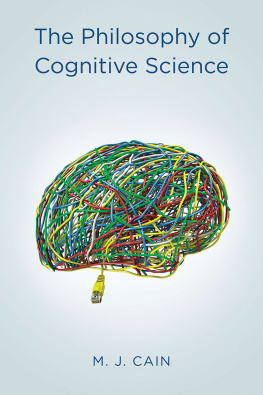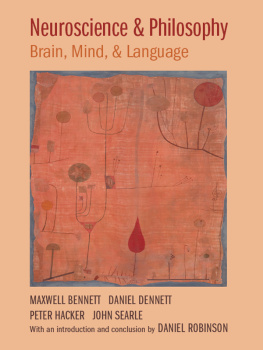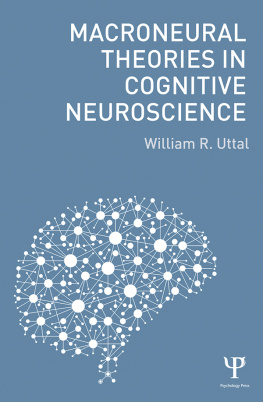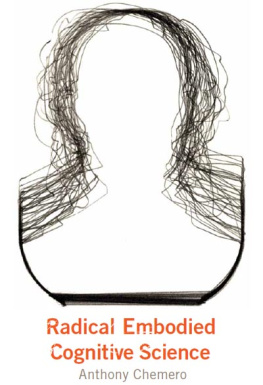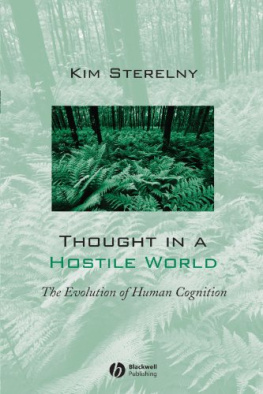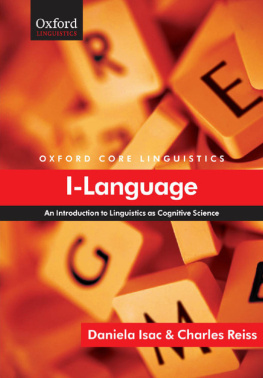The Adaptable Mind

Oxford University Press is a department of the University of Oxford. It furthers the Universitys objective of excellence in research, scholarship, and education by publishing worldwide. Oxford is a registered trade mark of Oxford University Press in the UK and certain other countries.
Published in the United States of America by Oxford University Press
198 Madison Avenue, New York, NY 10016, United States of America.
Oxford University Press 2021
All rights reserved. No part of this publication may be reproduced, stored in a retrieval system, or transmitted, in any form or by any means, without the prior permission in writing of Oxford University Press, or as expressly permitted by law, by license, or under terms agreed with the appropriate reproduction rights organization. Inquiries concerning reproduction outside the scope of the above should be sent to the Rights Department, Oxford University Press, at the address above.
You must not circulate this work in any other form and you must impose this same condition on any acquirer.
Library of Congress Cataloging-in-Publication Data
Names: Zerilli, John, author.
Title: The adaptable mind : what neuroplasticity and neural reuse tell us
about language and cognition / John Zerilli.
Description: New York : Oxford University Press, 2021. | Includes
bibliographical references and index.
Identifiers: LCCN 2020036080 (print) | LCCN 2020036081 (ebook) |
ISBN 9780190067885 (hardback) | ISBN 9780190067908 (epub) |
ISBN 9780190067915
Subjects: LCSH: Cognitive science. | Neuroplasticity. |
Language AcquisitionPsychological aspects.
Classification: LCC BF311 .Z447 2020 (print) | LCC BF311 (ebook) |
DDC 153dc23
LC record available at https://lccn.loc.gov/2020036080
LC ebook record available at https://lccn.loc.gov/2020036081
DOI: 10.1093/oso/9780190067885.001.0001
For my sister and brother, Daniela and Lucas.
Man is a machine so complicated that it is impossible at first to form a clear idea of it, and consequently to describe it. This is why all the investigations the greatest philosophers have made a priori, that is by wanting to take flight with the wings of the mind, have been in vain. Only a posteriori, by unraveling the soul as one pulls out the guts of the body, can one, I do not say discover with clarity what the nature of man is, but rather attain the highest degree of probability possible on the subject.
La Mettrie, LHomme machine, 1748
Contents
Id have never ventured into the field of cognitive science had it not been for the inspiring work of the linguist Noam Chomsky. Im sure ten thousand tongues could sing this song, but whether its a clich or not, its the truth. The technical brilliance, formal beauty, and extraordinary precision of his early work in transformational-generative grammar have never ceased to dazzle me. That he managed to contrive such a system while still in his twenties is simply astonishing. Anyone who has prepared a doctoral dissertation in a technical discipline knows something of the sheer brutality involved. To subvert, then reinvent, a whole technical disciplinein your twenties!is nonpareil. Ill be forever grateful that I was able to meet him personally during his visit to Australia in November 2011. I was even fortunate enough to be able to discuss with him some of the ideas that have found their way into this book. As it happens, I have arrived at conclusions that diverge from his in significant respects. But I have not done so lightly.
A second, but equally important, source of inspiration has been the work of the cognitive neuroscientist Michael L. Anderson, whom I was also privileged to meet, this time at a workshop run by Macquarie Universitys Department of Cognitive Science in June 2016. The idea of neural reuse had been with me as a kind of premonition for years: indeed, from the moment I first turned away from the practice of law and began to inquire seriously into matters concerning the mind and its structure. As a 27-year-old, having never formally studied biology, linguistics, mathematics, or philosophy, I incautiously submitted a masters thesis to the University of Sydney, canvassing issues in which some knowledge of these subjects would have been advantageous (to put it mildly). It was an unmitigated disaster, and I have ever since wished to eradicate all traces of it, prevented only by the limits of my jurisdiction over the Universitys thesis repository.



